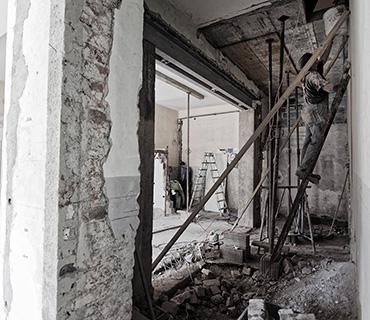The Danish Government has introduced three bills that impose new and markedly stricter requirements for landlords in Denmark. According to the Government, the aim is to curb rent increases on private housing in big cities and avoid that they serve as pure investment objects for investors. But what does this mean for investment in Danish properties? How do you act wisely as an investor and how do you protect your business as a landlord?
The Blackstone intervention is expected to be adopted at the beginning of June, and in that connection NJORD is focusing on how it will affect many landlords.
We will give you a survey of what the amendments to the Danish Housing Regulation Act will mean in practice, what the landlord should pay special attention to, and the options available.
Sign up for NJORD’s newsletters and follow us on LinkedIn in the coming weeks and get wiser on the governmental initiatives which especially will change the disputed rules on radically modernized properties and which, according to Minister for Housing Kaare Dybvad, will hit short-term property speculators, curb rent increases, especially in big cities, and push renovation of rental properties in a greener direction.
We will keep you updated on the new rules on:
- energy improvement requirements
- agreements on vacation of premises and duty of disclosure
- the size of the rent and inspection of tenancies
- waiting period and change of ownership
Get wiser on …
Our first article in this series deals with the stricter energy requirements that the landlord must meet in order to use the rules on radically improved tenancies. The new rules will adversely affect the valuation of many properties, as well as affect the profitability of planned modernization and in some cases render impossible its implementation. This may have severe consequences for landlords who are in the process of carrying out radical modernization, as they risk wasting a lot of money on energy improvements and modernization without being able to achieve the desired rent increases.
Our second article in this series addresses the Blackstone intervention prohibition against paying tenants to vacate premises and the landlord’s duty to inform tenants of landlord-tenant cases that the landlord loses in whole or in part. The landlord is punishable by a fine or imprisonment for up to four months if the rules are violated.
In our third article in this series, we look at how the future rent of radically modernized tenancies is fixed. Among other things, we look at what it means for the landlord that the future rent must not exceed the value of the tenancy by as much as one Danish krone. The Blackstone intervention also implies that in disputes about the value of the tenancy, special attention must be paid to comparable tenancies where the rent has been approved by the Rent Tribunal or the courts. It will also be a future requirement that, prior to a radical modernization, the Rent Tribunal inspects the tenancy and assesses whether this can be radically improved.
Our fourth article in this series deals with the new rules on waiting period and change of control. The rules imply that in radically improved tenancies, rent in accordance with the value of the tenancy can only be agreed on five years after a change of control.




